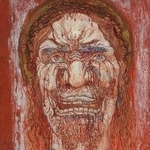'Onbeschaamde geleerden hebben zijn naaktheid betast.' Het vertoog over genealiteit, waanzin en degeneratie in België omstreeks 1900
DOI:
https://doi.org/10.18352/bmgn-lchr.5610Keywords:
PsychiatryAbstract
'Impudent scholars have fondled his naked body.' The discourse on genius, madness and degeneracy in Belgium around 1900
In the late nineteenth century two publications on the subject of 'genius' provoked a storm of controversy. The first, by Cesare Lombroso entitled 'L'uomo di genio' (1888), emphasized the various links between genius and madness. The second, by Max Nordau entitled 'Entartung' (1892), set out to prove that a large number of well-known artists of the time were in fact pseudo-geniuses and degenerates. In response to these publications a debate got under way among Belgian artists and scientists concerning the relationship between genius, madness and degeneracy. Most of those taking part in the debate opted to separate the notion of genius from the other two concepts. This way, 'the man of genius' could preserve his Übermensch' status throughout the debates. This does not mean that one uniform concept of genius prevailed. In fact, the way it was defined in practice left ample room to project the prevailing values of various subgroups in society.
Downloads

Downloads
Published
Issue
Section
License
Authors who publish with this journal agree to the following terms:
a) Authors retain copyright and grant the journal right of first publication with the work simultaneously licensed under a Creative Commons Attribution 4.0 International (CC BY 4.0) that allows others to share the work with an acknowledgement of the work's authorship and initial publication in this journal.
b) Authors are able to enter into separate, additional contractual arrangements for the non-exclusive distribution of the journal's published version of the work (e.g., post it to an institutional repository or publish it in a book), with an acknowledgement of its initial publication in this journal.
c) Authors are permitted to post their work online (e.g., in institutional repositories or on their website) prior to and during the submission process.
Authors are explicitly encouraged to deposit their published article in their institutional repository.








